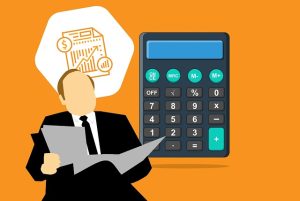Getting Through the Initial Ups and Downs of Trading
I was going through a forum the other day and reading the questions from new traders. One topic which came up fairly regularly was how the new traders had lost one, or a few, small deposits. Traders had typically deposited between $100 and $1000, and through trading it was now gone.
This type of start is very typical. When I first started trading I worked for a firm, so I had a team people who kept me on track and I was successful. When I quit and went to trade on my own, I lost my first two accounts (small ones) before I eventually was able to master my strategy and my emotions without anyone else around to keep me focused. Looking back, losing those deposits was a very small price to pay for the lessons learnt, which if heeded produce great results over the long-run.
The point is: through the first couple years of trading you likely to experience some turbulent times. Looking back on my own journey, and reading through the mistakes new traders are making, here are several key things you should know. Knowing about these mistakes won’t necessarily keep you from making them, but maybe your learning curve will be a bit quicker.
What Causes New Traders to Lose Their Deposit?
- The main reason is lack of a plan. In the forum traders were discussing what they do when they have a losing day. Most of the answers involved adjusting their strategy. WRONG! If you adjust your strategy after every losing day you will have no idea what works and what doesn’t over the course of many trades. Create a test a trading plan, and see it through. Use it day after day, for at least 15 days. If unprofitable, create a new strategy and then go through the same process. If you are profitable, then stick with the plan. If you see areas of improvement, make the improvement but use the new-and-improved strategy every single day.
- Money management is needed to sustain you through a string of losses. Risking more than 2% on a trade means that a run of bad trades (which can happen to anyone when market conditions change) can seriously hurt an account balance. Risk 2% or less (1% is recommended) and you can withstand a bad stretch with most of your capital still intact (see: Determining Binary Options Position Size for more information). Just because you are keeping your (percentage) risk small on each trade doesn’t mean you can’t make great returns. You can (see How Much Money Can I Make as a Day Trader?)!
- Once you’ve been trading for a while (or possibility even right away) you will have a “hot streak.” Nearly every trade you make is a winner. This gives an inflated sense of confidence, and causes traders to throw out their plan and money management. In the heat of the moment they forget it is their plan and money management which will sustain them. But arrogance takes over and the trader starts taking larger risks to grow their account faster, or they deviate from their trading plan because they believe they can predict every market move. Don’t do this! Stick to your plan, even when you feel like a trading god (see: The Problem of Trying to Outwit Your Trading Plan for more on this topic).
- If we can have hot streaks, we will also have cold streaks. Cold streaks are when you have a series of losing days in a row. It can be demoralizing, causing you to lose confidence in your plan and start taking larger risks in attempt to re-coup losses. Notice how a cold streak makes you do the same things as a hot streak? In both cases traders have a tendency to abandon their trading plan and money management rules. As mentioned above, do not deviate from your money management rules! If you have a whole week of losing days (assuming you are a day trader trading every day), then your plan may need adjusting. Stop trading, see how your plan could be adjusted. When you come back to trade stick to your new plan for at least 15 days to see if there is improvement. Adjusting your plan could be as simple as stating that you won’t trade when certain market conditions are present (which caused your cold streak).
- Another reason traders lose is because they have a plan but they don’t follow it. They make extra trades or skip strategy trade signals and thus the proven strategy produces random returns. There are lots of winning strategies and information available for free online, and provided on this site. Generally you will need to compile these bits of information into a complete trading plan that works for you. The problem is most traders don’t follow the plan, which is why they lose. In the moment, a trading plan is much harder to execute than most traders think. In hindsight it looks easy, but it takes a lot of trust and discipline to actually do it in real-time (watch: Mark Douglas Interview – Mind Over Markets video).
Final Word
Losing trades, and potentially even losing a small deposit or two, is part of trading. Almost every trader I know faced challenges early; the important thing is to come up with a plan and stick to it. Utilizing that plan and proper money management will put you in a small group of (potentially successful) traders, since most traders never bother to create a plan or use money management effectively. Through good times and bad, never waiver from your money management rules or a strategy that works.



